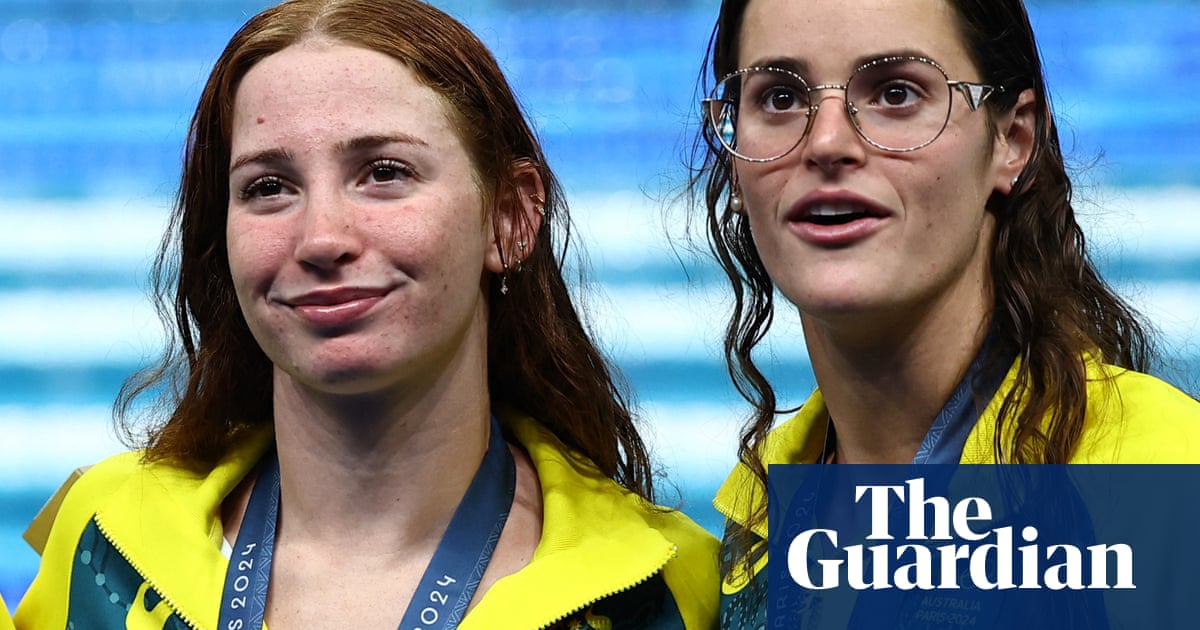Kaylee McKeown was in a dark place and Mollie O’Callaghan suddenly realised she had no friends outside of her sport. They were two lost souls after swimming in the fish-bowl of the Paris Olympics.
“Coming off the Olympics, I was in a really dark place mentally,” McKeown said. “When you go from such a high, straight back to such a low, and you’re left scrambling for ideas on what you’re going to do next, it is hard to find your feet once again.”
In Paris, McKeown became the first Australian to win four individual Olympic gold medals. And the first swimmer to successfully defend Olympic 100m and 200m backstroke titles was given the honour of being Australia’s joint flag-bearer at the closing ceremony.
McKeown, who also won a silver and two bronze in the French capital, was an Olympic legend. All within three weeks of turning 23.
“I don’t think people really know ... how much pressure we put on ourselves,” McKeown said in Adelaide at Australia’s selection trials for the world championships starting late July.
“You’re just so fixated on wanting to swim for yourself, for your country and for your team. You have all that amount of pressure to just do it ... and it [winning or not] really just comes down to nail bites.”
McKeown arrived in Paris with her 100m backstroke world record just broken by American rival Regan Smith. O’Callaghan arrived in Paris with her 200m freestyle world record just broken by fellow Australian Ariarne Titmus.
“I’m the exact same as Kaylee,” O’Callaghan said. “There’s immense pressure to perform at the Olympic Games, it’s the pinnacle of our sport. A lot of it is ourselves that put the pressure on because we know the work that goes behind it.
“Not a lot of people get to see the training sessions, the time, the dedication put in, because we don’t really have a life outside of swimming – it’s just all swimming.”
O’Callaghan won three gold medals, plus a silver and bronze, to be Australia’s most successful athlete at the Paris Games. All within four months of turning 20. But after the Olympic high, came the low.
“I noticed I don’t have friends outside of swimming because I have dedicated such a strong amount of time from school to now,” O’Callaghan said.
McKeown and O’Callaghan soon realised they needed extended breaks from the pool.
Sign up toAustralia Sport
Get a daily roundup of the latest sports news, features and comment from our Australian sports desk
after newsletter promotion
“It was just letting my hair down, having some fun and realising the hard work that I actually have put in over the years to get what I have,” McKeown said.
O’Callaghan discovered there was a life out of the water.
“That was something after the Olympics I got to learn, was actually having that freedom for five months to be able to go places, do things, without the consequence of swimming or having swimming in the back of my mind,” she said.
“And it’s just a nice refresher to know that there’s opportunities and there’s other connections outside [swimming] because a lot of the time our bubble is just swimming.”
In Australia, support is available atBeyond Blueon 1300 22 4636,Lifelineon 13 11 14, and atMensLineon 1300 789 978. In the UK, the charityMindis available on 0300 123 3393 andChildlineon 0800 1111. In the US, call or textMental Health Americaat 988 or chat 988lifeline.org.
